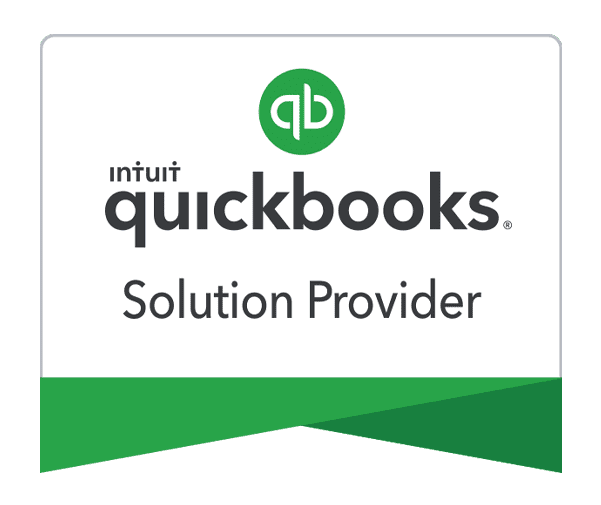Mobile Payment Processing vs. Traditional Payment Methods: A Comparison

Paygration, Inc.
Traditional payment methods, such as cash, checks, and credit card terminals, are being increasingly replaced by mobile payment solutions. Mobile payments offer speed, convenience, and flexibility that traditional methods often cannot match, making them an attractive option for businesses looking to stay competitive.
However, both mobile and traditional payment methods have their advantages and limitations. Understanding the key differences between these methods can help businesses make informed decisions about which payment solution best fits their needs. Let’s explore the main distinctions between mobile payment processing and traditional payment methods, highlighting the benefits and challenges of each.
Key Differences Between Mobile Payment Processing and Traditional Payment Methods
Speed and Convenience
Mobile payment processing offers unparalleled speed and convenience compared to traditional payment methods. With mobile payments, transactions can be completed in seconds, whether in-store or online. Customers can make payments with just a few taps on their smartphones, eliminating the need for physical cards or cash.
In contrast, traditional payment methods, such as cash and checks, often require more time and effort. Counting cash, writing checks, and manually entering credit card information can slow down the payment process. This delay can be particularly frustrating in high-traffic retail environments or when processing large volumes of transactions. Mobile payments streamline the entire process, offering a faster and more efficient payment experience.
Explore the benefits of using ERP payment integration for growing businesses.
Accessibility and Flexibility
Mobile payment processing provides greater accessibility and flexibility than traditional payment methods. Mobile payments allow businesses to accept payments from anywhere, whether at a physical store, online, or on the go. This flexibility is especially beneficial for businesses that operate in multiple locations or offer services outside of a traditional brick-and-mortar setting.
Traditional payment methods, such as credit card terminals and point-of-sale (POS) systems, are often limited by location and infrastructure. These methods require a fixed setup, making it difficult for businesses to accept payments in non-traditional environments. Mobile payments, on the other hand, provide the freedom to accept payments from virtually anywhere, giving businesses a competitive edge in today’s mobile-first world.
Security and Fraud Prevention
Security is a critical consideration when comparing mobile payments to traditional methods. Mobile payment processing leverages advanced security features, such as encryption, tokenization, and biometric authentication, to protect sensitive payment data. These measures help reduce the risk of fraud and ensure that customer information remains secure during transactions.
Traditional payment methods, particularly cash and checks, are more vulnerable to theft and fraud. While credit cards offer some security features, they are still susceptible to skimming, cloning, and other forms of fraud. Mobile payments offer a higher level of security by utilizing cutting-edge technology to protect transactions, making them a safer option for both businesses and consumers.
Cost and Efficiency
Mobile payment processing can be more cost-effective and efficient than traditional methods. With mobile payments, businesses can reduce the need for physical payment infrastructure, such as cash registers and credit card terminals. This reduction in hardware can lower costs and simplify the payment process.
Traditional payment methods often involve higher costs due to the need for physical infrastructure, maintenance, and manual labor. For example, processing checks can be time-consuming and costly, requiring manual entry and verification. Mobile payments, on the other hand, offer a more streamlined and efficient process, reducing the time and cost associated with payment processing.
Customer Experience
The customer experience is a key differentiator between mobile and traditional payment methods. Mobile payment processing offers a seamless and convenient experience, allowing customers to pay quickly and easily using their smartphones. This convenience can lead to higher customer satisfaction and loyalty.
Traditional payment methods, such as cash and checks, can be cumbersome and time-consuming for customers. Long wait times at checkout, manual entry of payment information, and the need for physical payment methods can negatively impact the customer experience. Mobile payments provide a faster, more convenient alternative that enhances the overall shopping experience.
Integration with Business Systems
Mobile payment processing offers better integration with modern business systems than traditional methods. Mobile payments can be easily integrated with accounting software, inventory management systems, and customer relationship management (CRM) tools. This integration streamlines business operations, automates tasks, and provides valuable insights into financial performance.
Traditional payment methods often lack this level of integration, requiring manual entry and reconciliation of transactions. This manual process can lead to errors and inefficiencies, making it more challenging for businesses to manage their finances. Mobile payments offer a more integrated and automated solution, improving overall business efficiency.
Adaptability to Changing Consumer Preferences
Consumer preferences are rapidly shifting towards mobile payments, driven by the convenience and security they offer. Businesses that adopt mobile payment processing can better meet the demands of today’s tech-savvy consumers. Mobile payments also allow businesses to offer additional features, such as loyalty programs and digital receipts, that enhance the customer experience.
Traditional payment methods may struggle to keep up with changing consumer preferences. As more consumers adopt mobile payments, businesses that rely solely on traditional methods may find themselves at a competitive disadvantage. Mobile payment processing provides the adaptability needed to stay ahead of the curve and meet the evolving needs of customers.
Simplify Mobile Payment Processing with Payment Integration
Integrating mobile payment processing with your existing business systems can streamline your payment workflows and improve efficiency. Payment integration enables businesses to connect their mobile payment solutions directly with their accounting, inventory, and CRM systems. This seamless connection ensures that transactions are automatically recorded and reconciled, reducing the need for manual data entry and minimizing errors.
With payment integration, businesses can also offer a wider range of payment options to their customers, including mobile wallets, contactless payments, and in-app payments. This flexibility allows businesses to meet the diverse payment preferences of their customers, providing a more convenient and satisfying payment experience.
Additionally, payment integration enhances security by ensuring that all mobile transactions are processed through a secure and compliant system. By automating the payment process, businesses can reduce the risk of fraud and ensure that sensitive payment data is protected. This added layer of security not only protects your business but also builds trust with your customers.
Conclusion
If your business is ready to transition from traditional payment methods to the convenience and security of mobile payments, Paygration can help you make the switch seamlessly. Our experts can set up the payment integration you need to incorporate mobile payment processing, regardless of the accounting software you use. This shift will streamline your payment workflows, enhance security, and improve your overall customer experience.
Our team will guide you through the process and ensure that your business is equipped with the best payment solutions for success. To get started with mobile payment processing through payment integration, call us at 866-949-7267.
















